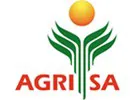 Land Bank has warned debt holders of R50 billion that it is in danger of defaulting. The repayments in question are for its revolving credit facility, Land Bank cited a current “liquidity shortfall” as the problem. This follows on the Moody’s credit downgrade of the bank on the 21st of January, this already highlighted the bank as “riskier”, making access to finance more challenging and expensive for the bank.
Land Bank has warned debt holders of R50 billion that it is in danger of defaulting. The repayments in question are for its revolving credit facility, Land Bank cited a current “liquidity shortfall” as the problem. This follows on the Moody’s credit downgrade of the bank on the 21st of January, this already highlighted the bank as “riskier”, making access to finance more challenging and expensive for the bank.
Land Bank is a significant player in the agricultural sector, with a strong market share of 29% of South Africa’s agricultural debt. The bank is an important line of credit for agribusinesses to finance the buy-in of harvests at silos and for production credit which the bank channels to farmers via agribusinesses.
Agriculture is cyclical as many farmers do not have a fixed or regular income, rather, they earn the bulk of their income in a short period (varies based on commodity) when their produce is harvested. Access to credit is essential to meet cashflow needs (for example: paying for inputs and labour) throughout the year, with farmers typically settling their debt when their produce is harvested.
The bank is one of a few state-owned companies that remain profitable, despite an increase in defaulting loans (drought challenges, etc.), recording a profit of R181 million in 2019.
The bank is mandated to fulfil an important developmental mandate; however, the bank is mainly depended on accessing funding in financial markets based on commercial terms. There seems to be a misalignment between the shareholder’s (Government/National Treasury) expectations of the bank and the level and type of funding and support that is given to the bank.
Whilst failing State-Owned Enterprises (SOEs) has already received consecutive bailouts, the Land Bank is much more deserving of government support. Agriculture is vitally important to South Africa’s food security and the broader economy. The sector is also posed to support post-COVID-19 economic recovery.
The government must show the necessary leadership and vision to urgently support the agricultural sector to resolve the Land Bank’s current default crisis. This can help to position the Land Bank and agriculture for growth, supporting broader economic recovery.
A Land Bank failure could expose the country to a substantial systemic risk with dire consequences for commercial farmers, job creation and food security and should be avoided at all cost.
We encourage the Land Bank Board and National Treasury to constructively engage with Land Bank clients and agricultural lenders to mitigate the systemic risk.
For more information:
Nicol Jansen
Agri SA
Tel: +27 82 948 2629
